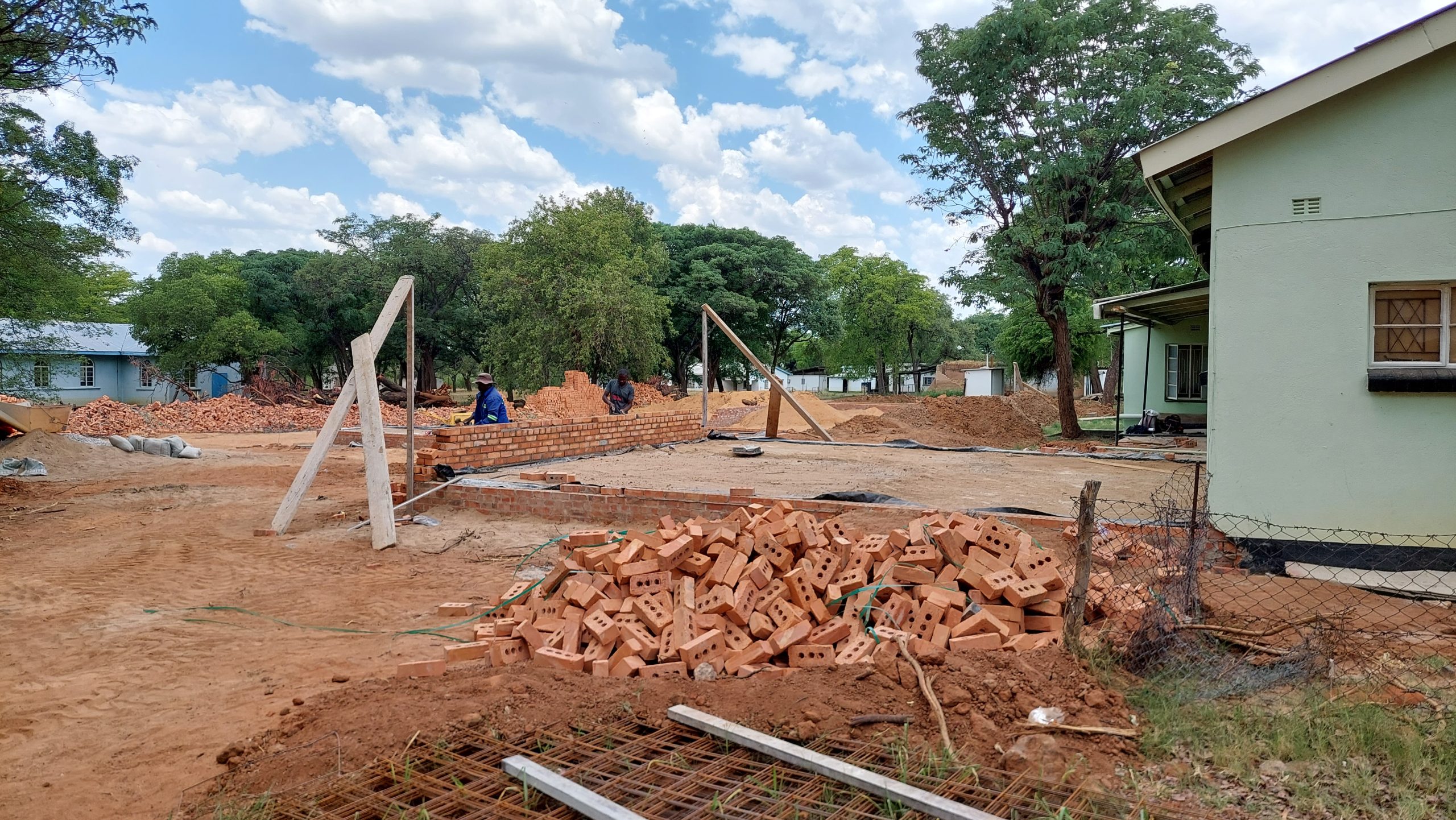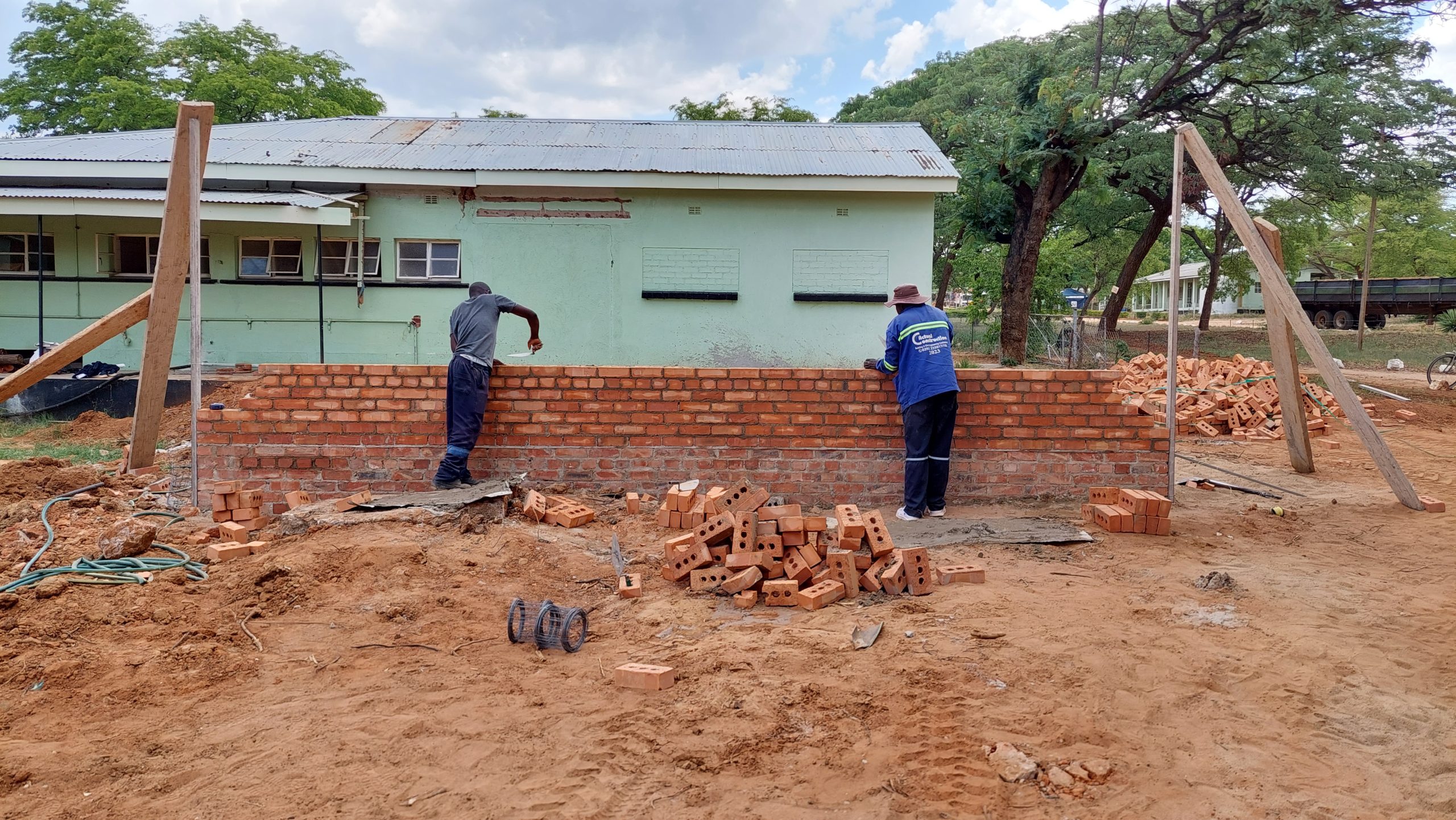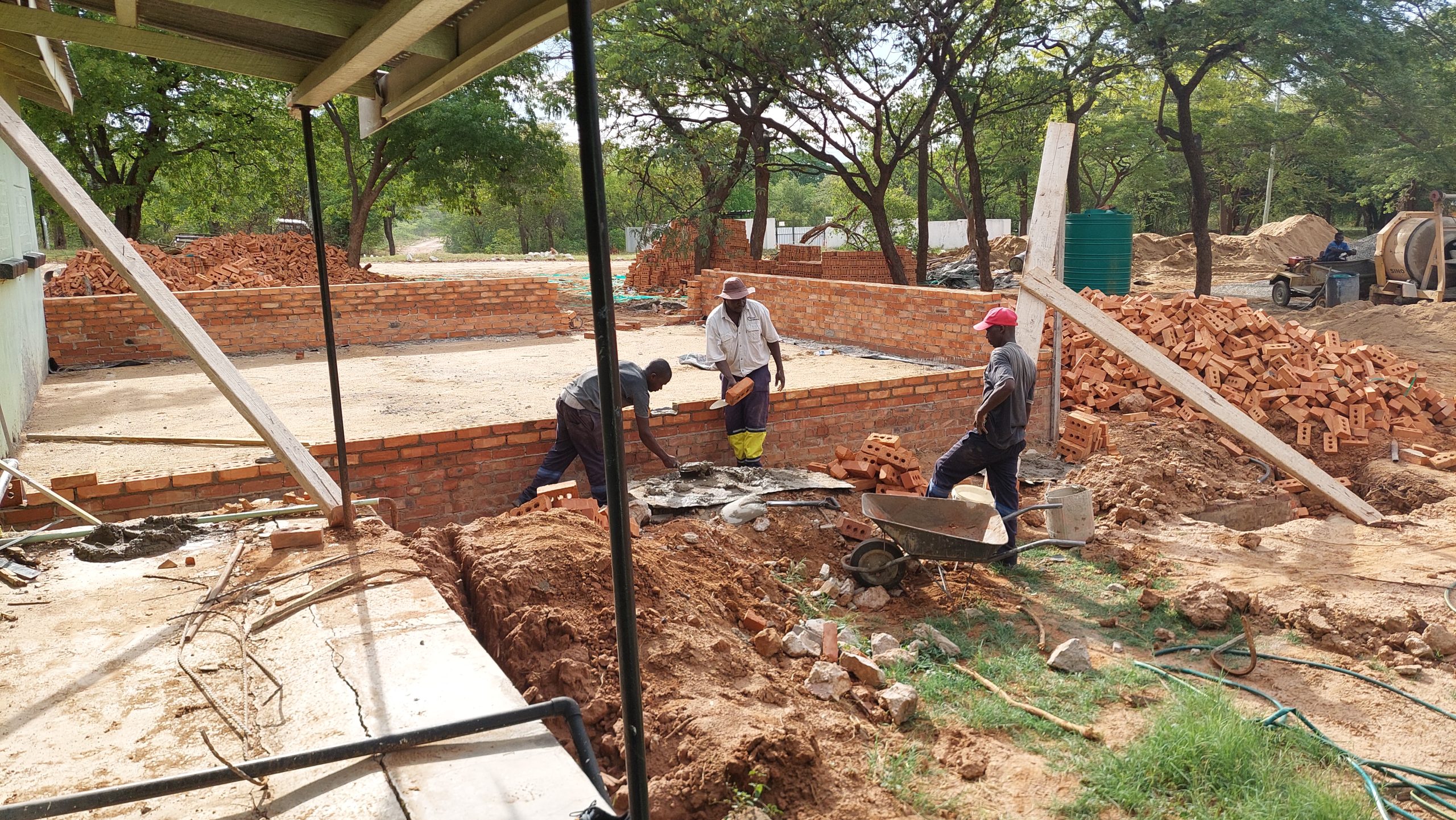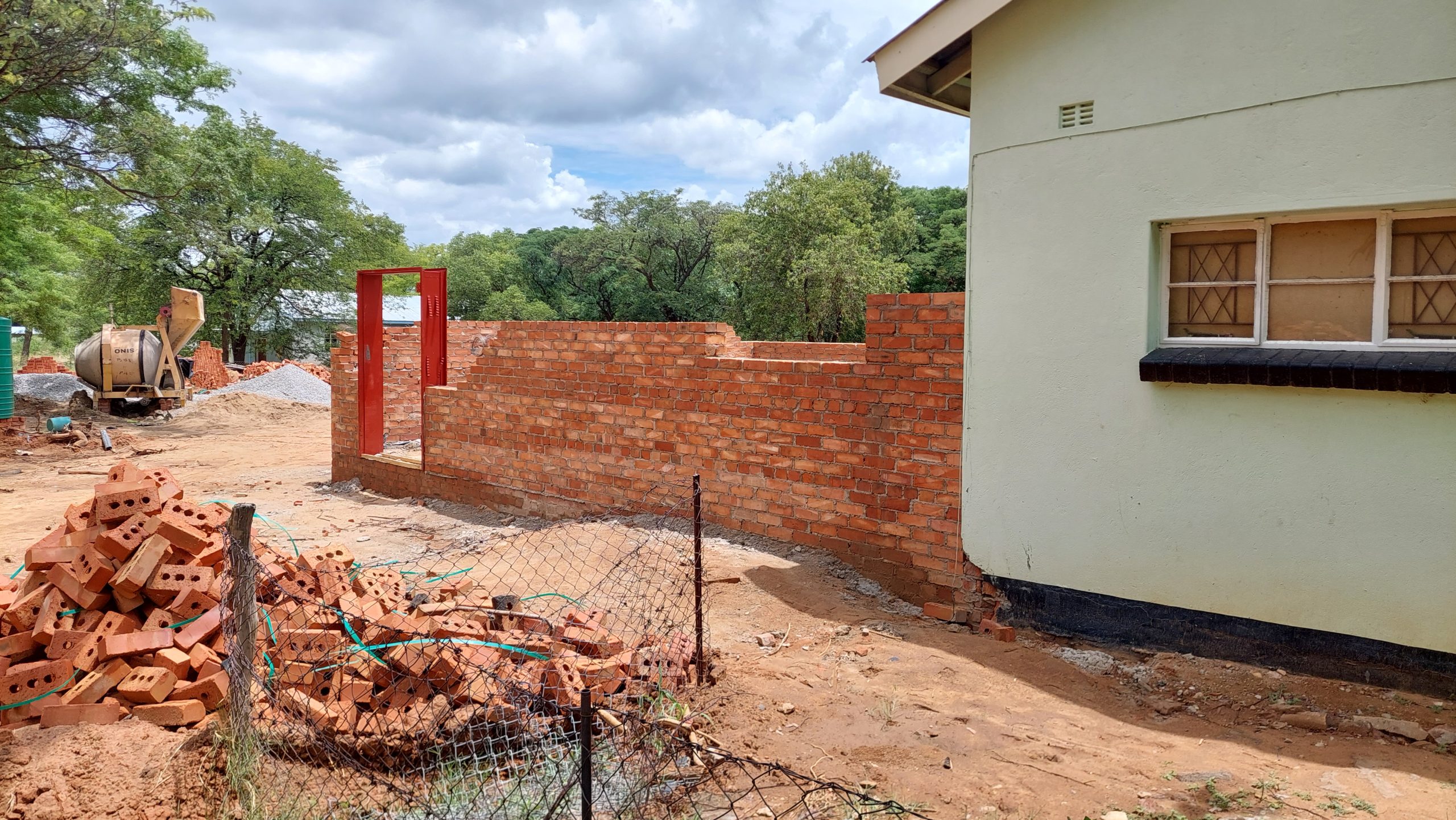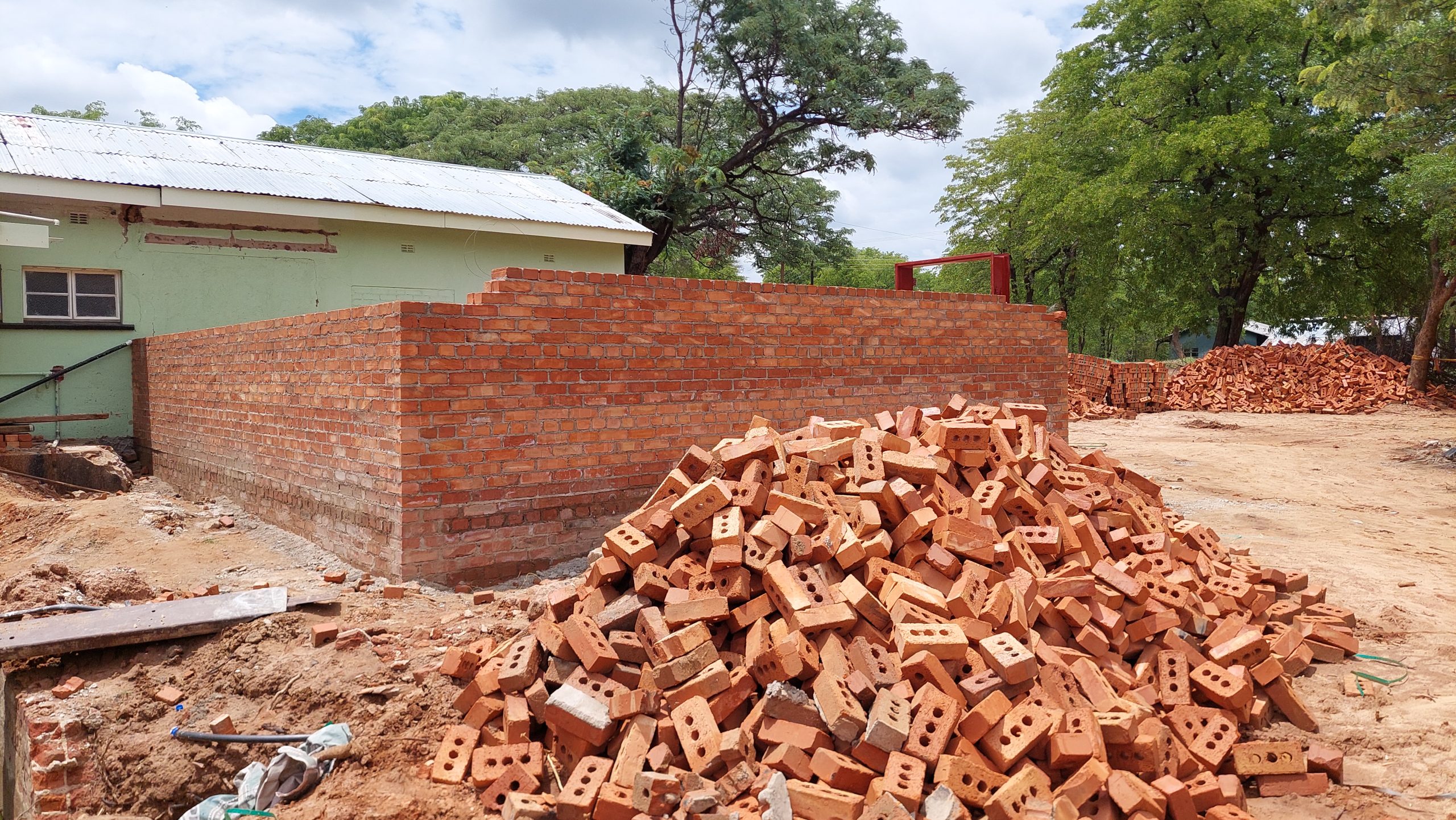door Mbuma | feb 17, 2024 | Geschiedenis
Zijn Afrikaanse bijnaam is Thandabantu, “de man die zijn volk liefhad.” Zijn werkveld lag in Zuid-Rhodesië, het tegenwoordige Zimbabwe, waar hij de Free Presbyterian Church of Scotland als onderwijzer en zendeling diende. Dit jaar is het vijftig jaar geleden dat James Fraser op jonge leeftijd overleed. Op zijn sterfbed spoorde hij de Nederlander Jan van Woerden aan om zijn werk voort te zetten: “Ik zal sterven, maar ik geloof dat de Heere hier een deel van Zijn wijngaard zal planten.”
James Fraser 1913-1959
In het pittoreske dorpje Strathpeffer, ten westen van Dingwall in de Schotse Hooglanden, stond zijn wieg. Zijn vader was boer en “laypreacher” (lekenpreker), een man die onder Gods kinderen veel achting had. De nog jonge kerk waartoe hij behoorde, bood geestelijk voedsel in een tijd dat de verschraling van het geestelijk leven in het eens zo gezegende land diepe sporen naliet.
Trouw aan de klassieke belijdenis van de Reformatie, richtten de Free Presbyerians zich niet alleen op hun eigen land, maar verstonden zij al spoedig na de afscheiding van de Free Church (1893) hun roeping tot verbreiding van het Evangelie buiten de landsgrenzen.
Het begin van het zendingswerk was zichtbaar op de drukke Lothian Road in Edinburgh. De zwarte John Radasi zat met zijn metgezel eenzaam en bedroefd op straat. Ze werden opgemerkt door een lady en haar zoon die tot de Free Presbyterians behoorden. Zij nodigen de jongemannen uit voor de “tea”. Spoedig waren ze verwikkeld in een geestelijk gesprek.
Radasi bleek de Heere te vrezen en bewogen te zijn met het geestelijk welzijn van het werelddeel waar hij vandaan kwam. De lady stuurde hierop een telegram naar Neil Cameron, predikant in Glasgow, die in gebed en overdenking werkzaam was met de zendingsroeping van zijn kerk. Zo werd de eerste zendeling uitgezonden. Geen man uit eigen gelederen, maar een “native”.
Radasi vertrok in 1904 naar Matabeleland (Rhodesië), waar hij een school en een kerk bouwde. Twintig jaar later kreeg hij versterking van John Tallach, maar toen deze op het station Bulawayo aankwam, bleek Radasi kort daarvoor door een trein gegrepen te zijn. Gods wegen zijn wonderlijk en vaak onbegrepen.
Tussen 1924 en 1948 werden nieuwe zendingsposten gesticht, zoals in Zenka en Mbuma. Ook werden zendingsscholen geopend, waarvoor James Fraser veel zou gaan betekenen. Fraser studeerde in Glasgow en volgde daarna aan het Jordanhill College de opleiding tot onderwijzer. In 1935 deed hij belijdenis van zijn geloof in Dingwall. Drie jaar later ging hij naar de zendingsschool in Ingwenya in Zimbabwe om Jean Nicolson tijdelijk te vervangen.
Hij zou naar Schotland teruggaan, maar de Tweede Wereldoorlog begon, en Fraser nam daarom een onderwijsbaan aan in Hope Fountain, een post van het Londens Zendingsgenootschap. Evenals in Ingwenya hield hij zich naast zijn eigenlijke werk bezig met evangelisatie. In deze jaren werd de basis gelegd voor zijn levenswerk. Na afloop van de oorlog trouwde hij met Christine Finlayson. Een jaar later sprak hij op de jaarlijkse synode van zijn kerk over de grote nood in donker Afrika: “Er is een roep die vanavond uitgaat van Afrika – een schreeuw om hulp.”
Hij vertelde dat hij op een van heuvels van het Shanganireservaat had gestaan en de wouden en grasvlakten voor zich zag, “met de rook van de Afrikaanse dorpen die hier en daar onder de bomen in de avondlucht opsteeg.” Toen voelde hij hoe onmogelijk het was om onwetende heidenen te bereiken. Alleen “de almachtige kracht van God en de gebeden van de meelevende kerk in het thuisland” konden de basis vormen voor dit werk. Fraser voelde zich geroepen om “in de kracht van God de Heere” een bijdrage te leveren om dit werk in Zimbabwe uit te breiden. In september 1947 vertrok het echtpaar Fraser met één kind naar Afrika om zijn levenswerk op zich te nemen. Zijn vrouw zou als verpleegkundige aan het werk kunnen.
Kweekschool
In Mbuma werd een ‘kweekschool’ gesticht om onderwijzers op te leiden. Petros Mzamo, die Fraser kende van Hope Fountain, werd eerst onderwijzer in Zenka en later leraar aan deze kweekschool. Het ideaal van John Knox om kerk en school te combineren was in het zendingsland moeilijk in praktijk te brengen vanwege de complexe situatie van de Afrikaanse cultuur. Het stichten van een klein ziekenhuis bracht, samen met medische zorg, ook het Evangelie dichter bij de mensen.
Een grote stimulans voor de zendelingen en voor hun staf was de bekering van Mawabo. Ze kwam, gekleed in lompen en met een opgezwollen voet, in het ziekenhuis in Zenka. Terwijl Fraser haar voet begon schoon te maken, zei hij “dat de wonden en ziekte van haar ziel veel erger waren dan die van haar voet.” Van deze geestelijke kwaal bleek ze totaal onkundig. Het kostte veel moeite om haar naar de kerk te krijgen. Ze had meer belangstelling voor mooie kleren uit Europa dan voor het Woord van God. Desondanks brak Gods Geest haar tegenstand. Fraser schreef in zijn rapport voor de synode: “Na negen maanden van ernstig zoeken werd de weg der zaligheid haar in een schitterende straal van genade geopenbaard.”
Haar houding en leven vormden een helder getuigenis van het werk van Christus. Toen ze jaren na de dood van Fraser zijn foto zag, sprak ze: “Hier is vader.” Zij keek omhoog en wees naar boven, en zei: “Hij is daar in de hemel. Wanneer ik sterf zal mijn lichaam in de aarde begraven worden, maar mijn ziel zal naar de Heere en naar “ubaba” (vader) gaan.”
Zusterkerk
In de jaren dat Fraser op de zendingsposten werkte, kreeg de zusterkerk van de FP Church in Rhodesië steeds vastere vorm. Ook het aantal medewerkers nam toe. Veel steun had Fraser aan de Nederlander Jan van Woerden, die met een schoonzus van hem trouwde en vooral bij de medische zorg werd betrokken. Van Woerden was in Londen tot bekering gekomen en sloot zich daar aan bij de FP Church. Met hem en James Tallach werkte Fraser nauw samen.
De ouderlingen John Mpofu en Paul Magaya waren hem ook tot grote steun. Zij waren mannen des geloofs die bij hun stamgenoten de liefde van Christus uitstraalden. Magaya werkte in de overtuiging dat “het hele reservaat (van Shangani) eens zal worden verlicht met de heerlijkheid van het Evangelie van de Heere Jezus Christus.”
Fraser preekte met kracht het Evangelie. Het centrum van zijn boodschap was de gekruisigde Christus “Die in de wereld gekomen is om zondaren zalig te maken.” Vaak was het ploegen op rotsen, maar ook wist hij van vrucht op zijn werk.
Het werk op de scholen en de toerusting van onderwijzers had zijn bijzondere zorg. Het Britse koloniale bestuur gaf steun; vooral schoolinspecteur James Stewart stond sympathiek tegenover de zendingsscholen en ging vriendschappelijk met Fraser om. Het arbeidsveld van de zendeling werd vergroot door werk onder de mijnwerkers van de Coronation Mine, waarvan de meesten uit Nyassaland (Malawi) kwamen. De levens- en morele omstandigheden onder het mijnvolk waren erbarmelijk. Dronkenschap kwam veelvuldig voor.
Beproeving
Tijdens zijn zendingsloopbaan werkten Fraser en zijn vrouw op verschillende posten. Na zijn officiële bevestiging in de Woordbediening in Schotland vestigde hij zich eerst in Zenka. Dit waren jaren van zegen en ook van beproeving. Daarna ging hij naar Shangani en Ingwenya.
Mbuma vormde een nieuwe uitdaging, waar hij de laatste jaren van zijn leven vaak boven zijn krachten werkte. Hier werd Petros Mazamo predikant die evenals Aaron Ndebele de FP Church in de volle bediening van Woord en sacrament mocht dienen. De gezondheid van Fraser was door het zware werk en het klimaat in Afrika ondermijnd.
In december 1958 werd hij ziek. Hij leed onder hevige hoofdpijn en aanvallen van malaria. Toch overleed hij niet aan deze ziekten, maar aan een mysterieuze kwaal die hem op 28 maart 1959 velde. Kort voor zijn sterven sprak hij tot Van Woerden: “Niet mijn wil, maar de Uwe geschiede. Dit zie ik nu in een bijzonder licht.”
Hij stierf in Bulawayo en werd begraven in Ingwenya, vlak bij het graf van Radasi. Ongeveer 2000 mensen woonden de begrafenis bij. Op zijn grafsteen staat dat hij 45 jaar oud was en 20 jaar in de zending gewerkt had. Zijn biografie, samengesteld door Alexander McPherson met wie hij enige tijd had samengewerkt, eindigt met de woorden: “Allen die een hartelijke belangstelling hebben in buitenlandse zending behoren nu de Heere des oogstes te smeken dat Hij wil opstaan en werkers wil uitzenden van het kaliber van James Fraser.”
Het geïllustreerde boek dat in 1967 bij The Banner of Truth verscheen werd later door J. Kooistra in het Nederlands vertaald.
Cameron Fraser, de enige zoon van de zendeling, schreef begin dit jaar ter nagedachtenis aan zijn vader een drietal artikelen in het blad The Banner of Truth. Hij was vier jaar oud toen zijn vader stierf. Hij is nu pastor van de First Christian Reformed Church in Lethbridge in Canada.
Bovenstaand artikel is te vinden op de site van digibron.
door Mbuma | feb 17, 2024 | Geschiedenis
Aan de wieg van bijna al het zendingswerk in Afrika stonden Europeanen of Amerikanen. Het was echter een Afrikaan die door God gebruikt werd als zendingspionier voor de Free Presbyterian Church of Scotland in Matabeleland, het huidige Zimbabwe. Sindsdien is het werk, dat vanuit Nederland wordt gesteund door de Mbuma Zending, sterk gegroeid. Portret van de zwarte grondlegger John Boyana Radasi.
John Boyana Radasi is, hoogstwaarschijnlijk in 1876, geboren in Transkei. Hij groeit er op in een christelijk gezin dat tot de Fingotam behoort. Totdat we hem in 1896 in Schotland aantreffen, is er weinig over hem bekend. Wel weten we dat hij als lid van een koor op tournee naar de Verenigde Staten is geweest en daar tot bekering is gekomen. Als John en een Afrikaanse vriend horen dat er in Schotland zo goed gepreekt wordt, besluiten ze naar dat land te reizen. We zien duidelijk dat ook hier de Heere de Eerste is. Hij plaatst Radasi op de weg die zal leiden naar het zendelingschap in Matabeleland. Daar staan de twee jongens, eenzaam in een van de straten van Edinburgh. Maar dan komt uit een van de woningen een jongeman naar buiten. Hij nodigt de Afrikaanse knapen binnen bij z’n moeder, mevrouw Sinclair. Die maakt wat eten voor hen klaar. Tot haar verbazing ziet ze hoe Radasi een zegen voor de maaltijd vraagt. In het gesprek dat volgt, wordt duidelijk dat hij een jongen is met een grote geestelijke belangstelling.
Zendeling
Mevrouw Sinclair weet dat ds. Neil Cameron in Glasgow, een van de predikanten van de nog maar drie jaar oude Free Presbyterian Church of Schotland, graag zou zien dat zijn kerk met zendingswerk begon. Onmiddellijk stuurt ze de predikant een telegram: „Hier heb ik uw zendeling.” Ze krijgt als antwoord: „Stuur hem hierheen!” Ruim acht jaar later -hij is dan klaar met zijn studie- wordt Radasi in een dienst in Glasgow tot zendingspredikant bevestigd. Op 21 december 1904 komt hij in de Afrikaanse stad Bulawayo aan. Hij heeft op dat moment nog geen idee waar hij precies moet beginnen met het werk, maar opnieuw zien we dat de Heere hem in Zijn voorzienigheid leidt. Op het perron van het station raakt hij aan de praat met de Afrikaanse predikant ds. Joseph Mfazi. Hun gesprek trekt de aandacht van een kruier, Stephen Hlazo, ook een jongen van de Fingo-stam. Als die het weekend thuis doorbrengt in Bembesi, zo’n 50 kilometer ten noorden van Bulawayo, vindt hij bij zijn vader een luisterend oor. Vader John, een kind van God, mist geen woord van wat zijn zoon hem vertelt over de jonge dominee die net is aangekomen om in hun gebied zending te gaan bedrijven.
Bembesi
Direct gaat Hlazo eropuit om Radasi te zoeken. Die is inmiddels 145 kilometer in tegenovergestelde richting gereisd, in de hoop een geschikte plaats voor een zendingspost te vinden. Terug in Bulawayo treft hij John Hlazo en enkele vrienden die op hem staan te wachten. Zij nodigen Radasi uit om in hun midden te komen wonen, wanneer zij daarvoor toestemming kunnen krijgen van het opperhoofd, Chief Ngege. Spoedig is alles voor elkaar. Radasi kiest een plek uit op Ingwenya, een plateau tussen twee rivieren. Anno 1997 is het de plaats waar een christelijke school staat waar honderden kinderen onderwijs krijgen en waar ds. Aaron B. Ndebele zijn gemeente heeft. Spoedig na zijn aankomst in Bembesi schrijft Radasi aan een van zijn vrienden in Schotland: „Ik gevoel de noodzaak dat Gods kinderen voor mij bidden om de genade en de kracht om getrouw te zijn in het vervullen van al de taken die op mijn weg geplaatst worden.” Maar hij haalt in zijn brief ook de bemoedigende woorden uit Psalm 2 aan: „Eis van Mij, en Ik zal de heidenen geven tot Uw erfdeel en de einden der aarde tot Uw bezitting.” Nog voordat 1905 ten einde loopt, opent Radasi een school. Er komen echter maar weinig kinderen. De meeste ouders vinden dat hun kinderen van meer nut zijn als ze het vee weiden. Daarom besluit de zwarte zendeling ook ’s avonds school te gaan houden. In de erop volgende jaren komt een aantal scholieren tot bekering. Ook Sigogo, de oudste zoon van opperhoofd Ngege, ontvangt het geloof
Bidstond
Het jaar 1905 is een jaar van grote droogte in het land. In geen tien maanden heeft het geregend. Als de mensen water willen hebben, moeten ze zes mijl lopen naar de dichtstbijzijnde grote rivieren. Ten slotte vraagt Chief Ngege aan Radasi of hij geen bidstond kan houden. Als andere zendelingen baden, kwam er regen, heeft hij gehoord. Het nieuwe kerkgebouw is inmiddels klaar. Bij gebrek aan water is alleen het pleisterwerk nog niet afgemaakt. Aan het ene einde van het gebouw worden een tafel en twee stoelen geplaatst. Een voor de dominee en een voor Ngege.
Niet minder dan driehonderd mensen komen naar de gebedssamenkomst. Langzaam en duidelijk leest de zendeling Jeremia 14 voor. Hij heeft net vers 7 gelezen, als het opperhoofd gaat staan en de mensen beveelt: „Zeg mij dit na: Wij hebben tegen U gezondigd.” Maar daar wil Radasi niet van weten. Geen onderbreking van de dienst. Als er wat te vragen valt, kan dat na afloop.
Die avond begint het te stortregenen. Het is voor de predikant een bijzondere bemoediging. Des te teleurstellender is het dat naar de gewone diensten maar weinig mensen komen. Toch gaat Radasi voort, ondanks het bijgeloof en de tovenarij die onder deze stammen gedurende vele generaties krachtig wortel hebben geschoten. Het betekent voor hem een grote stap voorwaarts als hij hulp krijgt van zes mannen die voorheen tot de Presbyteriaanse Kerk van Zuid-Afrika behoorden. Voor hij hen als lid aanneemt, neemt hij met hen de belangrijkste onderdelen van de Westminster Geloofsbelijdenis door. Ze komen na enige tijd terug en verklaren dat zij instemmen met alles wat Radasi hun uitgelegd heeft.
In december 1906 trouwt de Afrikaanse zendeling met Annie Hlazo, een zus van Stephen. Zij wordt al binnen vier jaar van haar man weggenomen, na slechts kort ziek te zijn geweest. Hun dochtertje Mabel is pas twee jaar als de jonge moeder overlijdt. Negen jaar later, in 1915, trouwt Radasi met Julia Sojini, de dochter van een opperhoofd dat tot bekering is gekomen. Uit dit tweede huwelijk worden vier dochters en een zoon geboren.
Behalve de school in Ingwenya sticht de zendeling ook schooltjes in de omgeving. Hij rapporteert daarover: „Het belangrijkste doel dat wij met de scholen op het oog hebben, is dat de mensen hun Bijbels leren lezen. Daaruit kunnen zij immers de leer van de rampzaligheid van onze val leren, van de verlossing door het bloed van Christus, en van de wedergeboorte door de Heilige Geest. Deze leerstukken moeten absoluut gebracht worden, willen de heidenen zalig kunnen worden. Het is in- en intriest dat sommige van hen die worden uitgezonden om de heidenen te onderwijzen deze leerstukken naar de achtergrond verdringen. (…) Bid dat ik getrouw mag blijven om de volle raad Gods te verkondigen en op mijn werk alleen vrucht te verwachten door de genade en de kracht van God.”
Overtuigd
Deze gebeden zijn door God verhoord. Vele mensen komen tot bekering. Onder de kinderen die door het Woord van God geraakt worden, is ook een meisje van de Ndebele-stam. Haar vader kan maar niet begrijpen waarom zij zo onrustig geworden is, en vertelt ds. Radasi over zijn problemen met haar. „Voordat we gaan eten, vraagt zij of ik even wil wachten. Dan houdt zij haar hand voor haar hoofd en spreekt tot iemand die wij niet zien. Vervolgens zegt ze: ‘Nu kunnen jullie gaan eten’. En elke avond voordat we naar bed gaan, vraagt zij of wij willen knielen. Dan spreekt ze tot de persoon die wij niet zien dingen die wij niet begrijpen. Ook ’s morgens vroeg vraagt ze ons te knielen. Dan spreekt ze met tranen in de ogen weer tot iemand die wij niet zien. We weten niet wat er met haar aan de hand is. Voordat ze naar de kerk ging, was ze altijd een gelukkig meisje. Nu klaagt ze over een slecht hart. Ik begrijp niet wat dat betekent, want het is een goed meisje. Nooit hebben we ook maar enige last met haar gehad.” De oude man begrijpt niet dat de Geest van God bezig is haar te overtuigen van haar zonde en ellende.
Droom
Radasi vertelt ook over het bezoek dat hij heeft gebracht aan een meisje dat nog maar kort te leven heeft. „Zij vroeg me of ik hoofdstuk 14 van het Johannesevangelie voor haar wilde lezen. Zij was zeer verontrust geweest vanwege haar zonden, maar deze woorden hadden verlichting gebracht en haar getroost: ‘Uw hart worde niet ontroerd; gijlieden gelooft in God, gelooft ook in Mij. In het huis Mijns Vaders zijn vele woningen; anderszins zo zou Ik het u gezegd hebben; Ik ga heen om u plaats te bereiden.’ Zij waarschuwde ook haar heidense ouders dat zij nü Christus moesten gaan zoeken, want anders zouden zij nooit kunnen komen in die woningen daarboven, waar zij heen ging.” Onder de volwassenen over wie hij schrijft, is een oude Matabele-vrouw die op een dag naar hem heeft gevraagd. „Ze zei: ‘Ik heb een droom gehad die mij grote angst heeft aangejaagd. Ik droomde dat ik op reis was en bij een grote rivier kwam. Aan de overkant van die rivier was een prachtige plaats. Iemand uit die plaats sprak mij aan en riep: ‘Jij kunt op deze plaats niet komen; je bent door en door vuil. Je moet teruggaan en je wassen.’ Toen ik die droom aan de mensen verteld had, kwamen ze met emmers water aansjouwen om mij te wassen. Ik zei hun dat het water niet de oplossing zou zijn, maar dat ze een dominee moesten halen. Ik wil zo graag dat u voor mij bidt!”
Gelukkig
Een andere vrouw vertelt aan Radasi: „Ik was een zorgeloze, goddeloze vrouw”. Op zekere nacht droomde zij echter dat iemand haar vertelde alles wat zij gedaan had, en wat voor een slechte vrouw zij wel was. Die iemand vroeg haar waar zij dacht heen te gaan als zij stierf „Ik voelde me vreselijk ellendig”, vertelde de vrouw. „Ik ging naar de kerk, maar vond er geen rust. Ik bleef me uiterst ongelukkig voelen. Maar op zekere dag werden in de kerk deze woorden uit het Woord van God voorgelezen, die mij verkwikking gaven: ‘Dit is een getrouw woord, en alle aanneming waardig, dat Christus Jezus in de wereld is gekomen om de zondaars zalig te maken’. Zelfs de voornaamste van de zondaren. Er is hoop voor mij en ik voelde mij gelukkig.”
In 1923 krijgt de zwarte zendeling last van suikerziekte. Hij moet zijn werkzaamheden beperken tot Ingwenya. De kerk in Schotland beseft dat de zendeling dringend hulp nodig heeft. John Tallach, een Schot die bezig is met zijn theologiestudie, voelt roeping tot het zendingswerk en biedt zich aan. Nadat hij tot predikant is bevestigd, vertrekt hij in oktober 1924 per boot naar Afrika. Op 4 november 1924 gaat Radasi naar Bembesi, om de trein naar Bulawayo te nemen. Daar zal hij zijn nieuwe collega ontmoeten. In Bembesi loopt hij voor een stilstaande trein het spoor over. Terwijl hij dat doet, komt plotseling met grote vaart de trein naar Bulawayo binnen. Radasi komt onder de trein terecht en is op slag dood. Trouw en zonder ophef is hij twintig jaar lang in het binnenland van Afrika bezig geweest in het werk waartoe God hem geroepen had. Slechts tweemaal werd zijn isolement doorbroken, doordat broeders predikanten uit Schotland een bezoek van enkele weken aan het zendingsveld brachten. Maar onbeweeglijk hield hij vast aan het geloof dat in de Schriften geopenbaard is. Nu was zijn werk beëindigd.
Bovenstaand artikel is te vinden op de site van Digibron:
door Mbuma | jan 23, 2024 | Verbouwing
Er is veel werk verzet in de afgelopen maanden. Ladingen met afgegraven kleigrond gingen de toegangspoort uit en ladingen zand kwamen de poort in. De kleigrond is afgegraven omdat het niet genoeg draagkrachtig is en vervangen door het lokaal aanwezige Kalaharizand dat veel beter draineert. Op het verdichte zand is de fundering gebouwd. Inmiddels ligt ook de vloer erin en zijn alle deur- en raamkozijnen aangekomen. Dat betekent dat we verder kunnen met de opbouw van de muren. Zeker nu we in de piek van het regenseizoen zitten en hevige regenbuien overtrekken, zijn we blij dat de fundering er in ligt. En de lagere temperaturen zijn ook aangenamer om te werken, in november tikte de thermometer dagenlang de 40 graden aan. De foto’s geven een impressie van de bouwwerkzaamheden tot nu toe. Graag willen we u hartelijk bedanken voor u financiële steun, waardoor de uitvoering van dit project mogelijk is!

